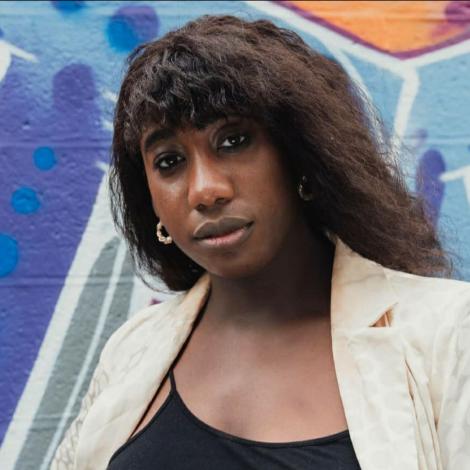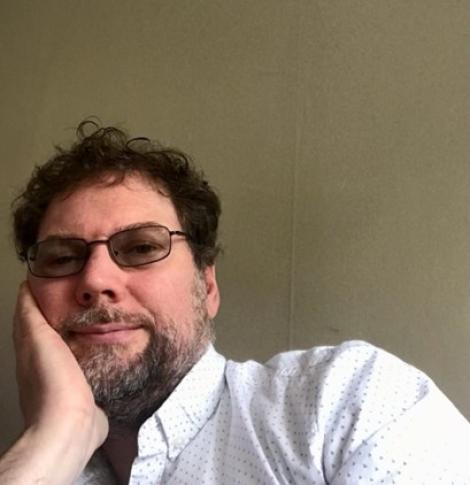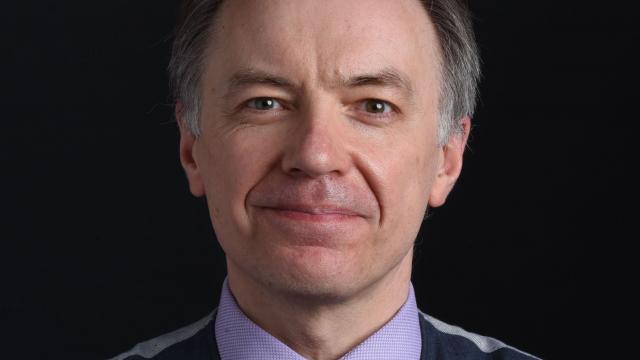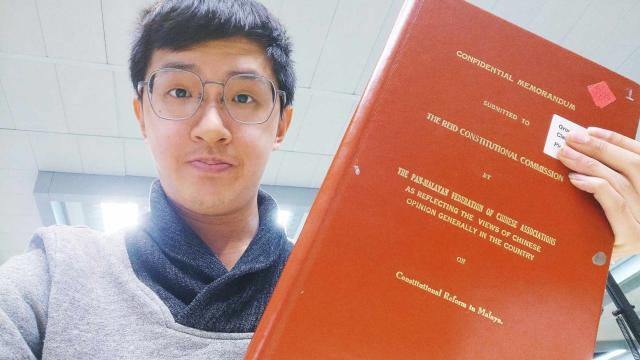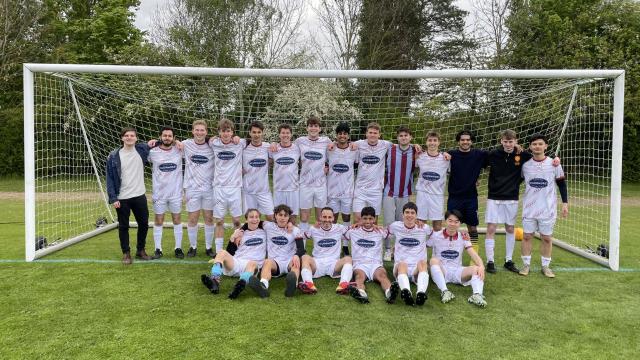
Ola Majekodunmi (broadcaster, producer, writer, and Gaeilgeoir) joined the IOI series to discuss with Professor Iarfhlaith Watson (Professor of Sociology, University College Dublin) how being an Irish language speaker has shaped her life and identity in Ireland, moving to Dublin from Lagos, Nigeria, at seven months old. Is Irish truly a language for all on the island of Ireland? How can Irish be promoted as more than just a school subject? Is the Irish language the key to integration for increasing numbers of refugees, asylum seekers, and immigrants? Why do Irish-language schools often have a lack of diversity and how can this be addressed? And we consider how Irish can be promoted in Northern Ireland where it is seen as a politicised issue.
Executive summary
- Ola Majekodunmi (broadcaster, producer, writer, and Gaeilgeoir) joined the IOI series to discuss ‘Language, identity, and diversity in Ireland’ with Professor Iarfhlaith Watson (Professor of Sociology, University College Dublin), reflecting on her own experience growing up in Ireland, having migrated from Lagos, Nigeria, at seven months with her family.
- Ola explained that linking all her work as a writer, producer, broadcaster, journalist, and Irish language speaker, is the desire to create a voice for minorities on the island. She often felt unable to use her voice growing up, particularly on issues like race, and now wants to correct that and become the voice that she didn’t have.
- Although she thinks acceptance of a multicultural Ireland is growing, she notes that for a long time, immigration and multiculturalism has only been ‘tolerated’ and that when her parents arrived in Dublin in 1997, the general consensus was ‘why would immigrants be coming here?’. Despite the slow but steady progression towards greater tolerance, Ola cautions the ‘dangerous’ rise of a far-right in Ireland, particularly as a swell of people coming to Ireland seeking a new life has put pressure on resources including housing.
- Much of the discussion circled around the idea of how Irish can be promoted on the island. Ola held that the crux of the problem is people being unaware of the opportunities it can provide and seeing it as a foreign language just to be learnt at school. Helping shift this misconception and presenting the language as one that can be used professionally, creatively, and in everyday life, is essential to growing its use.
- Ola attended an Irish language school for both primary and secondary education and holds that it broadly has given her positive opportunities in life and employment. For her, learning Irish introduced her to a language she loves and provided a bridge into Irish culture. She also acknowledged, however, that the Irish language speaking community can seem unwelcoming and daunting to those on the outside.
- Iarfhlaith and Ola talked about how racism can exclude people in different and complex ways. If Irish Language median schools have a lack of diversity, then public representation of professional Irish speakers can easily reflect this. Resolving these issues in tandem, by increasing diversity in schools and in the public Irish-language speaking space, would make a significant impact on combatting racism in Ireland.
About the speaker
Ola Majekodunmi was born in Lagos, Nigeria, and moved to Dublin, Ireland, at seven months old. She is a broadcaster, producer, Gaeilgeoir, public speaker, and writer, regularly contributing to the Irish Times. She currently presents ‘Unheard’ on RTÉ 2XM, highlighting black and Gaelach musicians. Ola directed and produced the 2018 viral video-documentary ‘What Does “Irishness” Look Like?’ which was screened at the Belfast Feminist Festival, Belfast Film Festival and Rathmullan Film Festival, as well as the 2021 bi-lingual video-documentary ‘Say My Ainm’ in collaboration with Axis Ballymun, that was screened in the Irish Film Institute as part of Black History Month. In 2019 she co-founded Beyond Representation, an initiative that celebrates women of colour’s achievements in Arts, Media, and Business.
About the discussant
Professor Iarfhlaith Watson is an Associated Professor of Sociology at University College Dublin. Dr Watson was the Head of UCD School of Sociology (2017-2022), where he has been a lecturer since 1996. He has been President of the Sociological Association Ireland, elected member of the Board of the International Visual Sociology Association, Irish member of the International Social Survey Programme and an Associate Editor of Visual Studies.
Watch the conversation
What was said?
Ola Majekodunmi moved to Dublin in 1997 with her family from Lagos, Nigeria, at just seven months old. After receiving a leaflet through the door, her father decided to send her to an Irish language-medium school. For Ola, this experience was undoubtedly a significant bridge into Irish culture for her, even if it seemed like second nature at the time. Now working as a broadcaster and writer, presenting Raidió na Life’s Afra—Éire show which focuses on the African-Irish community, Ola wants to be a voice for ethnic minorities in Ireland. She joined the IOI series to discuss ‘Language, identity, and diversity in Ireland’ with Professor Iarfhlaith Watson (Professor of Sociology, University College Dublin).
Arriving in the late 1990s during the Celtic Tiger era of growth, Ola talked about how attitudes to immigration have evolved in the past twenty years. She commented that when her family arrived, immigration was something that was tolerated rather than accepted, and that the typical attitude was one of ‘why are immigrants coming here?’. Families such as hers went against the general consensus that Ireland was a country with outwards migration, rather than the reverse. In 2023, she thinks acceptance is the more prominent attitude, mentioning the success of sprinter Rashidat Adekele (born in Ireland to Nigerian parents) who has flown Ireland’s flag in the athletics field. Ola argued that Rashidat is highlighting how people from ethnic minority backgrounds can do amazing things for Ireland, and only want to add to the country, not take away. She cautioned vigilance against the growing far-right voice in Ireland which has been partially stoked by recent influxes of people wanting to make Ireland their home, putting pressure on housing, and causing some asylum seekers to sleep on the streets.
Ola has always ‘felt Irish’ and felt comfortable in that Irishness. Although only receiving her Irish passport during her Leaver’s Certification, she said that to identify as Irish is ‘a feeling inside of you, it doesn’t need documentation’. Receiving the passport and becoming ‘officially Irish’ was still a big moment for her, even if she knows some people will always see her as a ‘black girl’. Despite this strong connection to Ireland, she also feels equally connected to Nigeria and the Yoruba culture. She talked about how many people from dual-heritage backgrounds feel a ‘tug of war’ between their two homes. Niamh Gallagher commented on how for many Irish emigrants globally, this sense of liminal belonging will likely strike home. She asks whether learning Irish provided a bridge into Irish culture that Ola’s parents didn’t experience. Whilst Ola thinks the language certainly helped, she also thinks that age is a significant factor and that arriving as a child meant she didn’t really think about the process of integrating. Why is it the case that many migrant families do not embrace this method of integration? Ola commented that some migrant families arrive in Ireland in very vulnerable circumstances and that the idea of your children learning a language you don’t speak yourself can be an unwanted extra pressure. Ola also acknowledged the perception of the Irish-language speaking community as unwelcoming and elitist, albeit this has never been her experience. She also talked about the limited public representation of people of colour speaking Irish. Although she herself is praised as a pioneer in challenging the perception that Irish speaking is only for people who are native Irish, Ola also stressed that her career and life has not been about purposefully challenging this, rather she simply loves the language and loves to use it.
Ola and Iarfhlaith also discussed the place of the Irish language is Irish society. Iarfhlaith raised the fact that although following independence there was a high point of Irish-language speaking, with the Department for Education using it as the working language, now only a minority in the country speak it. Ola noted that despite a huge demand for Irish-language medium schools, the government isn’t funding the building of new schools. She also commented on the fact that many students who attend these schools forget the language upon graduating. Ola thinks the focus for boosting Irish speaking should be on publicising the opportunities more, and helping shift the language away from being seen as just an academic, school subject, and instead one with great creative possibilities. Ola expressed sadness that some people in Ireland view Irish as a ‘foreign language’ and commented that the onus for promoting good teaching of the language and its benefits lies with the government, rather than individuals. Iarfhlaith raised the recent Official Languages Amendment Act which sets a government target of 20% of new recruits to public office being Irish speaking. For Ola, the fact that 20% is the target is reflective of how little Irish speaking is promoted. The pair discussed the impact a lack of diversity in Irish speaking schools could have on this new intake and Ola argued that – although she isn’t always pro-quotas – quotas in schools and the scheme may be the solution.
Niamh asked how Irish can be promoted in Northern Ireland, where it is seen as a deeply politicised issue. Earlier in the talk Ola had stressed that Irish shouldn’t be seen as a political choice or radical. She returned to this idea again, arguing that it should be a language for everyone. In the Republic, this is certainly what she thinks they’re focusing on. Niamh finished with a question considering regional languages in the UK, such as Welsh, Scots Gaelic, and Cornish, and wondered whether the Irish speaking community could offer any advice in terms of reviving languages. Ola praised recent efforts from both Scotland and Wales, commenting that the latter was particularly impressive in their efforts to advance the language. She floated the idea of a coalition for regional languages where they could draw from each other. Commenting on a recent Scots Gaelic documentary featuring a mixed-race presenter, Ola returned once more to the need for greater representation and warned these regional languages to not let themselves be pigeon-holed.
